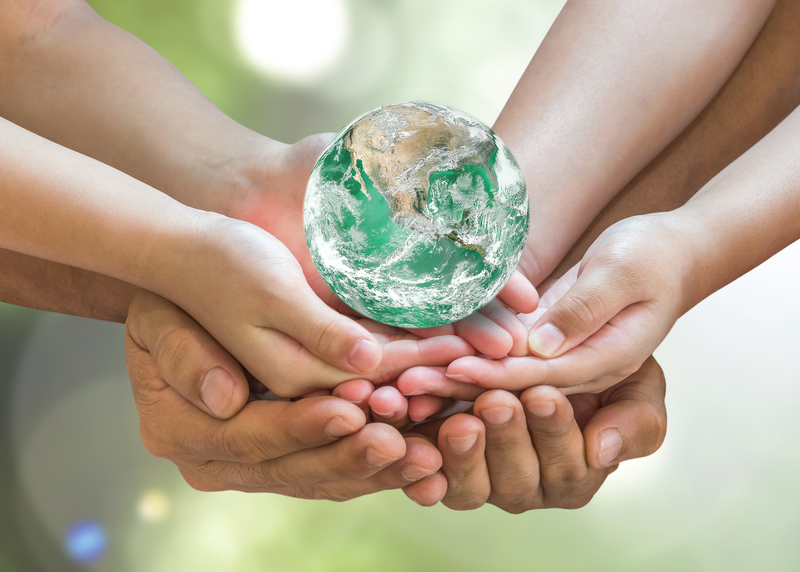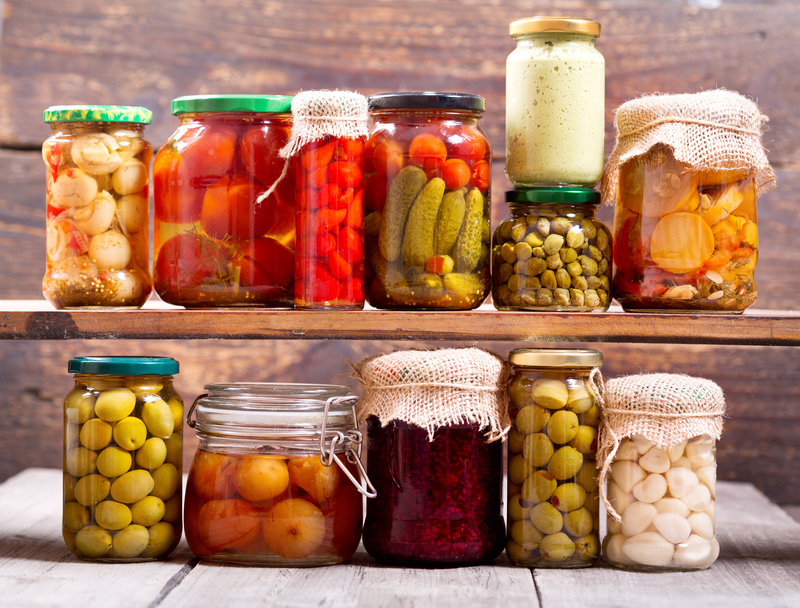Avoiding Plastic Pitfalls: Essential Insights for a Cleaner Future
Plastics have become an indispensable part of modern life, but their benefits come with serious environmental and health challenges. To create a healthier and more sustainable world, understanding how to avoid plastic pitfalls is crucial. This comprehensive guide provides you with essential insights, detailed strategies, and actionable tips to minimize plastic risks in daily life while fostering eco-friendly habits.
Introduction to Plastics and Their Challenges
Every day, plastic products make our lives more convenient--from packaging to electronics and household goods. However, our planet is grappling with the after-effects: pollution, wildlife endangerment, and even the infiltration of microplastics into our food chain. Avoiding pitfalls of plastic isn't simply about reducing your use; it's about making informed choices, understanding recycling limitations, and exploring sustainable alternatives.

Understanding the Plastic Problem
The world produces approximately 400 million tons of plastic each year. Despite the common belief that recycling offers a solution, only about 9% of all plastic waste is recycled globally. The rest often ends up in landfills, oceans, or as litter, adversely affecting ecosystems and human health.
- Plastic Pollution: Non-biodegradable plastic persists in the environment for hundreds of years, leading to the accumulation of waste.
- Wildlife Threat: Animals mistake plastic for food, often with fatal consequences.
- Human Health: Microplastics, generated from the breakdown of larger plastics, are now found in water, air, and food.
- Resource Depletion: Producing plastic consumes significant fossil fuel reserves.
Common Pitfalls Involving Plastic
Plastic pitfalls are the subtle and often overlooked ways we unintentionally contribute to environmental damage. Below are key challenges that many consumers encounter:
- Single-Use Plastics: Products like bags, straws, and packaging are discarded after one use, creating an enormous waste burden.
- Recycling Myths: Not all plastics are recyclable, and confusion about recycling symbols leads to contamination and landfill overflow.
- Greenwashing: Companies may advertise "biodegradable" or "compostable" plastics, but these often require industrial processes not available to the average consumer.
- Misleading Alternatives: Some alternatives to plastic (like paper bags or glass containers) may also have their own environmental drawbacks if not used responsibly.
Essential Insights to Avoid Plastic Pitfalls
Adopting a critical approach to your plastic consumption is essential. Here are some expert-backed strategies to recognize and sidestep the most common pitfalls of plastics.
Know Your Plastics: Types to Avoid
Understanding resin identification codes (the numbers inside the triangle symbol) helps you make better choices. Not all plastics are created equal:
-
Type 3: PVC (Polyvinyl Chloride)
This material is found in pipes, toys, and some packaging. PVC contains harmful chemicals like phthalates and lead, and is difficult to recycle. -
Type 6: PS (Polystyrene)
Commonly used in foam cups and food containers, polystyrene can leach styrene, a reference carcinogen, and is rarely recycled. -
Type 7: Other
This category includes polycarbonates and bioplastics. Polycarbonates may contain BPA, a hormone disruptor.
Avoiding single-use or difficult-to-recycle plastics reduces your environmental impact and lowers your exposure to harmful chemicals.
Reducing Dependence: Sustainable Alternatives to Plastic
Embracing a lifestyle that minimizes plastic usage is not only possible but also fulfilling. Opt for sustainable alternatives to plastics whenever possible. Here's how:
- Adopt Reusables: Carry a reusable water bottle, coffee cup, and shopping bag. Stainless steel, glass, and silicone options are durable and safe.
- Switch to Bulk and Package-Free Shopping: Buy grains, nuts, spices, and other essentials from stores that offer bulk bins. Bring your own containers.
- Choose Sustainable Packaging: Look for products packaged in paper, glass, or biodegradable alternatives. Many companies now offer zero-waste packaging options.
- Avoid Microplastics in Personal Care: Read labels to avoid products with "polyethylene" or "polypropylene" beads.
Remember, even small steps make a difference. By intentionally selecting plastic alternatives, you help diminish overall global demand.
Practical Tips for Avoiding Plastics in Daily Life
In the Kitchen
- Store Food in Glass or Stainless Steel Containers for safety and longevity.
- Swap Plastic Wrap for Beeswax Wraps, silicone lids, or cloth covers.
- Shop Fresh: Choose loose fruits and vegetables; avoid pre-packaged produce.
- Use Mesh Produce Bags: Instead of plastic bags, opt for reusable fabric or mesh alternatives.
On the Go
- Bring Your Own Bottle and Cup: Many coffee shops offer discounts for reusable cups.
- Refuse Plastic Straws and Cutlery: Carry a set of stainless steel or bamboo utensils.
- Opt for Cloth Totes: Always have a foldable tote for impromptu shopping trips.
In the Bathroom
- Use Bar Soap: Choose plastic-free bars over liquid soap in bottles.
- Switch to Shampoo Bars or refillable shampoo options.
- Try Bamboo Toothbrushes and compostable dental floss.
The Importance of Reading Labels and Choosing Wisely
To truly avoid plastic pitfalls, buyers must become vigilant consumers. Here's how to scrutinize packaging and product labels more effectively:
- Look for Recyclability: Not all plastics are accepted by your local facility. Check your municipal guidelines and buy items in packaging you're sure can be recycled.
- Avoid Hidden Plastics: Items like tea bags, clothes, and even chewing gum often contain plastics. Opt for natural or certified compostable alternatives.
- Scrutinize "Biodegradable" Claims: Only trust certifications and learn what they mean--many so-called biodegradables require industrial composting.
Understanding Recycling Symbols and Local Rules
Familiarize yourself with the recycling codes found on packaging. Not every code is recyclable in every area:
- #1 PET (Polyethylene Terephthalate): Common in bottles and food trays; widely recycled.
- #2 HDPE (High-Density Polyethylene): Used for jugs and containers; widely recycled.
- #3-7: Recycled less frequently; check with your local council.
**Remember:** Contamination with food or mixing different plastic types reduces effectiveness of recycling.
Clever Innovations: Future Alternatives to Plastics
Science and industry are working rapidly to address plastic's profound problems. While individual responsibility is important, supporting innovative solutions helps drive systemic change. Here are some cutting-edge alternatives to plastic products:
- Plant-Based Plastics: PLA, made from corn or sugarcane, is compostable under industrial facilities.
- Edible Packaging: Made from algae, rice, or seaweed, used for food wraps and beverage packets.
- Advanced Recycling Technologies: Chemical recycling breaks down plastics to their base molecules for reuse, but is not yet widely available.
- Shopping with Refilleries: These zero-waste stores allow you to buy everything from shampoo to spices without single-use packaging.
While these developments are promising, the best current approach remains: reduce first, then reuse, and recycle only when necessary.
Engaging in Broader Solutions: Advocacy and Community Action
No single consumer can solve the plastic crisis alone. Teaming up with others amplifies your voice and impact. To further avoid the pitfalls of plastic as a community:
- Join Local Cleanup Efforts: Participate in beach or stream cleanups targeting plastic pollution hot spots.
- Advocate for Policy Change: Support bans on single-use plastics and demand better recycling infrastructure.
- Educate Others: Share tips about avoiding plastic and using sustainable materials with friends, family, and online communities.
Support Responsible Companies
Consumers wield immense power. Seek out and support brands that are transparent about their supply chains, use recycled materials, and actively work towards zero-waste goals.
Summary: Key Takeaways for Avoiding Plastic Pitfalls
- Be Informed: Learn about different types of plastics and their risks.
- Change Habits: Carry reusables and avoid single-use plastics in all areas of life.
- Read Labels: Scrutinize packaging for recycling suitability and hidden plastics.
- Choose Alternatives: Opt for glass, stainless steel, or certified compostables where possible.
- Get Involved: Join or support community action and advocacy for better policies.
Resisting the plastic trap isn't just possible--it's enjoyable and contagious when you see real impact. The choices you make today are essential insights that lead to a cleaner, healthier tomorrow.

Frequently Asked Questions About Avoiding the Pitfalls of Plastic Use
What is the single most important step I can take to avoid plastic pitfalls?
Start with reusables: A reusable water bottle, shopping bag, and coffee cup can eliminate hundreds of single-use items annually.
Are all biodegradable plastics safe for the environment?
No, many require industrial composting and won't break down naturally in the landfill or ocean. Look for certified compostable products and understand their disposal requirements.
Is recycling enough to solve the plastic problem?
Recycling is important, but insufficient on its own. Reducing consumption and choosing sustainable products must be the priority.
What can I do when there are no sustainable alternatives to a necessary plastic product?
Maximize the life of that product, reuse as much as possible, and dispose of it responsibly according to local recycling programs.
How do microplastics affect health?
Microplastics in freshwater, seafood, and air have been linked to inflammatory responses and may carry toxins. Research on human health effects is ongoing, but reducing exposure is advised.
Start Your Plastic-Free Journey Today
Armed with these essential insights on avoiding plastic pitfalls, every step you take--big or small--carries weight. Lead by example, encourage your community, support sustainable policies, and together we'll build a cleaner, greener world with less plastic.